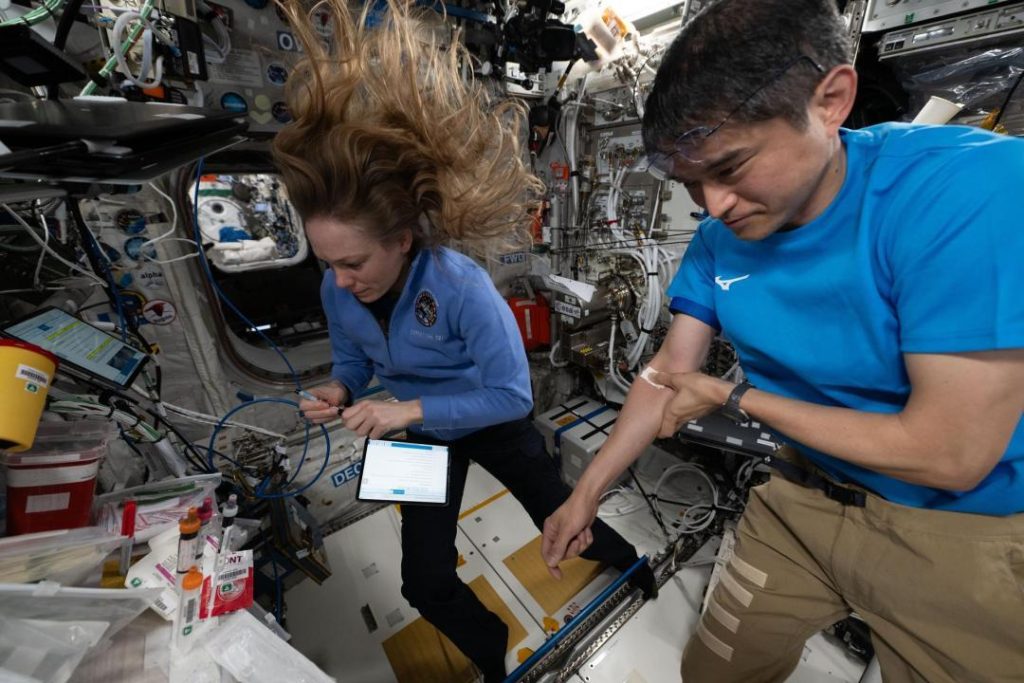
What is the Immunity Assay study for which astronauts are collecting blood in space?
In a recent development, astronauts Nichole Ayers and Commander Takuya Onishi collected blood samples from their crewmates while on board the International Space Station (ISS) for the Immunity Assay study. This unique experiment aims to monitor the cellular immune functions in the blood samples of space station crew members during their mission. NASA has stated that this study can help maintain and protect astronauts’ health during long-duration space missions.
The Immunity Assay study is a crucial aspect of space research, as it helps scientists understand how the human body responds to the unique conditions of space travel. Prolonged exposure to space can cause various physiological changes, including immune system dysregulation, which can increase the risk of infection and compromise the health of astronauts.
Astronauts who participate in long-duration space missions, such as those aboard the ISS, are exposed to a variety of stressors, including microgravity, radiation, and isolation. These stressors can cause changes in the immune system, making astronauts more susceptible to illness and infection. The Immunity Assay study aims to identify the effects of these stressors on the immune system and develop strategies to mitigate them.
The study involves collecting blood samples from astronauts at regular intervals during their stay on the ISS. The blood samples are then analyzed for various immune function markers, such as cytokines, chemokines, and immune cell subsets. By monitoring these markers, scientists can gain insights into how the immune system is responding to the unique conditions of space travel.
One of the primary goals of the Immunity Assay study is to identify the optimal immune function profiles for astronauts during long-duration space missions. By identifying these profiles, scientists can develop personalized strategies to maintain immune function and prevent immune system dysregulation.
The Immunity Assay study has significant implications for the future of space exploration. As NASA and other space agencies plan for longer and more complex missions, such as sending humans to Mars, it is essential to understand how the immune system responds to the unique conditions of space travel. The study’s findings will provide valuable insights into how to maintain and protect the health of astronauts during these missions.
In addition to its significance for space exploration, the Immunity Assay study also has broader implications for human health. By understanding how the immune system responds to stressors, scientists can develop new strategies to prevent immune system dysregulation in people on Earth. This could lead to the development of new treatments for immune-related disorders, such as autoimmune diseases and cancer.
The Immunity Assay study is just one example of the cutting-edge research being conducted on the ISS. The station provides a unique platform for scientists to study the effects of microgravity on the human body and develop new technologies and strategies for long-duration space missions.
In conclusion, the Immunity Assay study is a critical aspect of space research, as it helps scientists understand how the human body responds to the unique conditions of space travel. By monitoring cellular immune functions in blood samples of space station crew members, scientists can identify the optimal immune function profiles for astronauts during long-duration space missions and develop strategies to maintain and protect their health. The study’s findings will have significant implications for the future of space exploration and human health.






